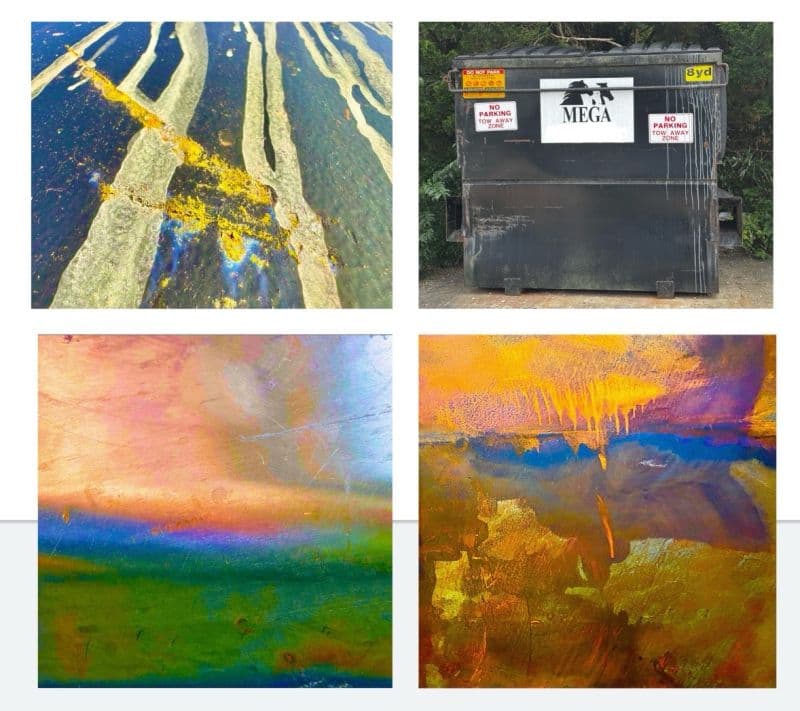Jose Barrera, Boomband's Head of AI and Data Science, has an unusual hobby: he photographs dumpsters wherever he travels. Not the trash inside them. Not as ironic commentary. He photographs them because he's discovered something truly beautiful hidden in plain sight—textures, colors, patterns, urban archaeology that most people walk past without a second glance. This ability to see what others cannot is exactly why Boomband CEO Jeff Taylor recruited him. And it's exactly the kind of signal that would never show up on a resume.
The Bankruptcy of Attention
"You can skip past something or someone so easily without seeing the beauty," Taylor reflects. "Why do we do that?"
In our short-attention-span, quick-to-switch, immediate-satisfaction world, we're slowly going bankrupt in our ability to see the profound that's just below the surface. Sometimes things don't start revealing themselves until 15 seconds in. Or they're hidden in the grit that shines at mile 23 of a marathon. Or they're present in a new idea that doesn't immediately connect because it's genuinely new. The hidden gems—whether in talent, in ideas, or in dumpsters—are discovered because:
- You know what to look for
- Your curiosity takes you there
- You're willing to go deeper
For decades, the tools we've used to match talent to opportunity couldn't do any of these three things.
The Brand Perfect Trap
For Players (those building careers, seeking opportunities, growing their networks), Taylor worries that if your brand isn't "just right," you'll struggle. If you don't work for the right company, with the right title, with the right years of experience, you'll have to work harder to get noticed. The resume screeners are quick. The algorithms are unforgiving. The attention span is short.
And the tools? They're essentially the same tools Taylor and his team invented 30 years ago when they built Monster.
Jumping the Curve
In 1993, Monster disrupted the old way of matching talent to opportunity. Before Monster, you waited for the Sunday help wanted ads. You worried about resume paper stock. You mailed in your credentials and hoped.
Monster created new roles, new behaviors, new possibilities. Suddenly you could search by skills, not just flip through newsprint. You could apply instantly, not wait for business hours. The playing field shifted.
But those tools—the online job board, the searchable resume database, the keyword-based matching—haven't fundamentally evolved in three decades. "We at Boomband feel that we are at a similar moment to jump the curve," Taylor says. This is the concept that innovation strategist Guy Kawasaki made famous—the idea that true disruption doesn't improve the existing curve, it jumps to an entirely new one. Monster didn't make newspaper classifieds better; it made them obsolete. The question now: what makes online job boards obsolete? Taylor's answer: "With AI and agents as enablers, we can quickly go deeper on both sides to drive richer connections." Going deeper on both sides means:
For Scouts (recruiters, hiring managers, talent teams): moving beyond keyword screening to discover the Jose Barreras of the world—the people whose unique perspective and capability would never surface in a traditional search
For Players (people who work): finally having a way to showcase what makes you excellent beyond bullet points and job titles—your thinking, your work, your curiosity, your story
When you jump the curve, the old advantages fade and new ones emerge. For a time, the old way of doing it isn't an advantage. We all get a new look.
What This Means for You
If you're a Player navigating this transition, the same factors that rewarded talented Scouts looking for hidden gems now apply to you:
1. Know what to look for
The companies on the move aren't necessarily the ones with the biggest brands. They're the ones reimagining how work gets done, who's doing it, and how to find them. Start tracking: Which companies are experimenting with new ways to evaluate talent? Which are hiring for capability over credentials? Which are building cultures where your specific flavor of excellence would thrive?
2. Let your curiosity take you there
The "hidden in the newest ideas" opportunities require you to engage with what's emerging, not just what's established. That might mean contributing to open source projects, writing about problems you're solving, documenting your learning in public, or building the thing you wish existed. These are signals that showcase how you think, not just what you've done.
3. Be willing to go deeper
"Struggle well," as Taylor puts it, means doing the hard work of understanding and articulating your own value beyond the resume format. It means:
- Reflecting on how you approach problems, not just that you solved them
- Identifying patterns in what energizes you and what drains you
- Getting specific about the contexts where you do your best work
- Building the muscle of translating your experience into story, not just summary
This deeper self-knowledge isn't just nice to have—it's becoming table stakes as the tools for matching talent to opportunity evolve to handle richer, more nuanced signals.
The Hidden Gems of Data Are About to Surface
Jose's dumpster photography isn't just a quirky hobby. It's pattern recognition. It's the discipline to stop when everyone else keeps walking. It's the belief that beauty and value exist in unexpected places—if you're willing to look. That trained eye, that curiosity, that willingness to go deeper: these are exactly the capabilities the next generation of tools will finally be able to discover and reward. For 30 years, we've been constrained by tools that could only see the surface. The curve jump is coming. The question is: when the tools can finally go deeper, what will they find when they look at you?
